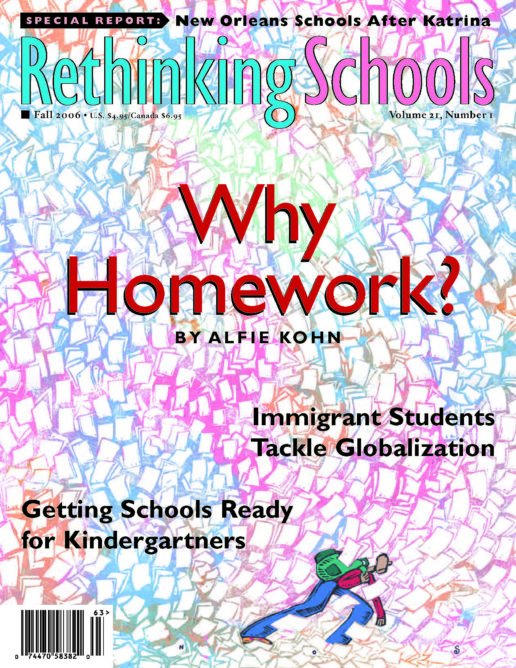Good Stuff 21.1

Why Monkeys Live in Trees and Other Stories from Benin
By Raouf Mama
(Curbstone Press, 2006)
90 pp. $10.36 (paperback)
Holding Values: What We Mean
by Progressive Education
Edited by Brenda S. Engel and Anne C. Martin
(Heinemann, 2005)
208 pp. $21 (paperback)
Where I live, in Point Arena, Calif., you can often see people leaning on the beds of their trucks, gossiping and telling stories. It’s an informal classroom where I learn about what’s going on in the community and how the past connects to the present.
Raouf Mama, in his wonderful book, retells trickster and sacred stories from his native Benin. He describes this blessed nature of stories in this excerpted poem that opens the book:
Blessed are the storytellers, for to them God gave the gift of eloquence. That their words may go forth to the four corners of the earth. Charged with the fire of passion and the wisdom of the ages, Making the deaf to hear and the blind to see. Blessed are the storytellers, for in the magic circle of the storyteller's art We enter into the drama of the human heart.
I can imagine reading Mama’s wonderful stories in a kindergarten class or in a graduate seminar. Students could talk about them and create their own versions. We are blessed with such stories as “Why Monkeys Live in Trees,” “Why Bee Makes Honey and Snake Crawls on Its Belly” and “The Most Delicious Food in the World.”
There are many good anthologies of stories and tales, but Raouf Mama is telling the stories from his own tradition and crafts his knowledge to the page in an illuminating and artistic way.
Holding Values is quite different, but equally interesting. It consists of short essays — stories, really — told by members of the North Dakota Study Group, an organization created by Vito Perrone when he was dean of the school of education at the University of North Dakota.
The central purpose of the group was to affirm support for progressive education and, when necessary, redefine progressivism according to the nature of current educational needs and debates. This book brings together the voices of many educators who have been members of the group: Deborah Meier, Lillian Weber, Joseph and Helen Featherstone, Leslie Alexander, Eleanor Duckworth, and Maria Sapon-Shevin. The stories are a way to help us all to keep to humane values in the schools and escape from the tyranny of No Child Left Behind.

